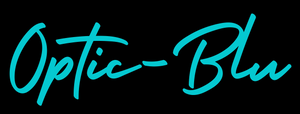
Do Blue Light glasses Improve Sleep?
Do Blue Light Glasses Improve Sleep?
Introduction
If you've been having trouble sleeping at night, blue light glasses might be the answer. They're not just for movie theatres anymore! Blue light is emitted by most electronics and can disrupt your circadian rhythm, which regulates sleep. Blue light glasses can help block this harmful light while still allowing you to see clearly during the daytime.
What are blue light glasses?
Blue light glasses can be prescription or non-prescription. If you have a vision problem, such as nearsightedness, farsightedness or astigmatism, a doctor will prescribe the right lens power for you. You can also purchase non-prescription blue light glasses that filter out the harmful rays. We offer non-prescription glasses with a +0.0 magnification as well as blue light blocking reading glasses.
Blue light is the part of the visible light spectrum that is most damaging to your eyes and is found in sunlight during daytime hours and indoor lighting at night. It causes eye strain, headaches and insomnia by suppressing melatonin production in our bodies—the hormone that helps us sleep deeply through the night.
How do blue light blocking glasses improve sleep
-
Blue light from screens can disrupt your circadian rhythm.
-
Blue light can cause sleep problems, such as insomnia.
-
Blue light glasses filter harmful blue light wavelengths, which helps you sleep better by improving sleep quality and reducing eye strain.
Reducing blue light from your screens
-
Use blue light blocking glasses. If you can't avoid using your phone or tablet late at night, you should use blue light blocking glasses to reduce the amount of blue light that reaches your eyes (and therefore your brain). The first step is to find a pair of glasses with good reviews and then make sure that they block enough of the light spectrum to help you sleep better.
-
Reduce the amount of time spent on screens. It doesn't matter if you wear special glasses or not—the less time spent looking at bright lights from electronic devices before bedtime, the better chance there is that they'll help improve sleep quality over time. That means no more reading emails or scrolling through social media before bed!
-
Avoid using your phone or tablet during nighttime hours (or at least limit usage as much as possible). The best way to prevent eyestrain and fatigue caused by excessive screen use is by limiting these activities during nighttime hours when it's harder for our bodies and brains to adjust properly after being exposed so much longer than usual throughout daytimes hours where we're exposed only briefly here and there rather than constantly throughout entire days like most people do today thanks so much more often than ever before due because smartphones became popularized around 2000s decade when everyone started having one instead just older generations had them long ago decades back ____
How to choose the right blue light glasses
-
Look for glasses that block blue light
-
Look for glasses that are comfortable
-
Look for glasses that are durable
-
Look for glasses that are easy to clean (especially if you wear them at night)
-
Look for glasses that are stylish and fit your personal style (this is important!)
The best blue-light blocking eyewear will offer all of these things, but it might take time to find the right pair. We've put together a list of helpful tips below:
Conclusion
So, do blue light glasses improve sleep? The answer is yes. Blue light from your screens can disrupt your circadian rhythm and make it harder to fall asleep. By blocking this blue light with our specially crafted glasses, you can give yourself get a good night's sleep by allowing your body to wind down before bedtime (or whenever else you decide).
